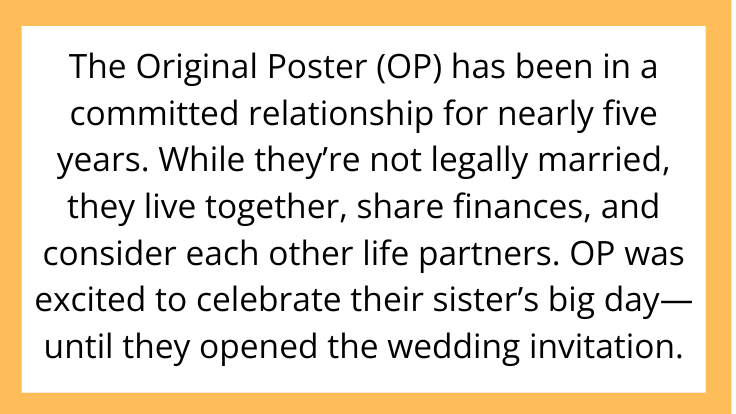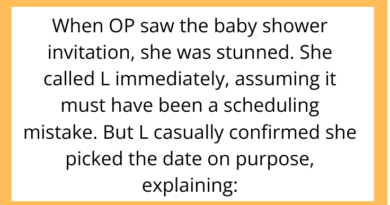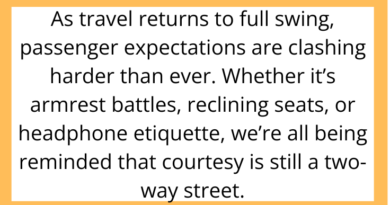Am I the Jerk for Skipping My Sister’s Wedding Because I Wasn’t Allowed to Bring My Partner?
Weddings are supposed to bring families together—but what happens when a single decision turns celebration into conflict? That’s the situation one Reddit user found themselves in after choosing not to attend their sister’s wedding. Why? Because their long-term partner wasn’t invited.
In this emotionally charged AITAH story, we explore the complicated intersection of family loyalty, relationship boundaries, and the unspoken rules of wedding guest lists.
The Situation: A Wedding Invite with a Catch

The Original Poster (OP) has been in a committed relationship for nearly five years. While they’re not legally married, they live together, share finances, and consider each other life partners. OP was excited to celebrate their sister’s big day—until they opened the wedding invitation.
The invite was addressed to OP only. No plus-one. When OP asked their sister about the omission, she responded, “We’re keeping it small and only inviting spouses.”
OP was stunned. Several other guests were bringing long-term partners, and even casual girlfriends were included on the list. OP’s partner, however, was deliberately excluded. The reasoning? Their relationship “wasn’t real” since they weren’t married.
Feeling disrespected and hurt, OP declined the invitation and chose not to attend. The fallout? Family drama, angry phone calls, and accusations of selfishness. Now OP is asking: Am I the jerk for skipping my sister’s wedding over this?
Commitment Without a Ring: Is Marriage the Only Valid Relationship?
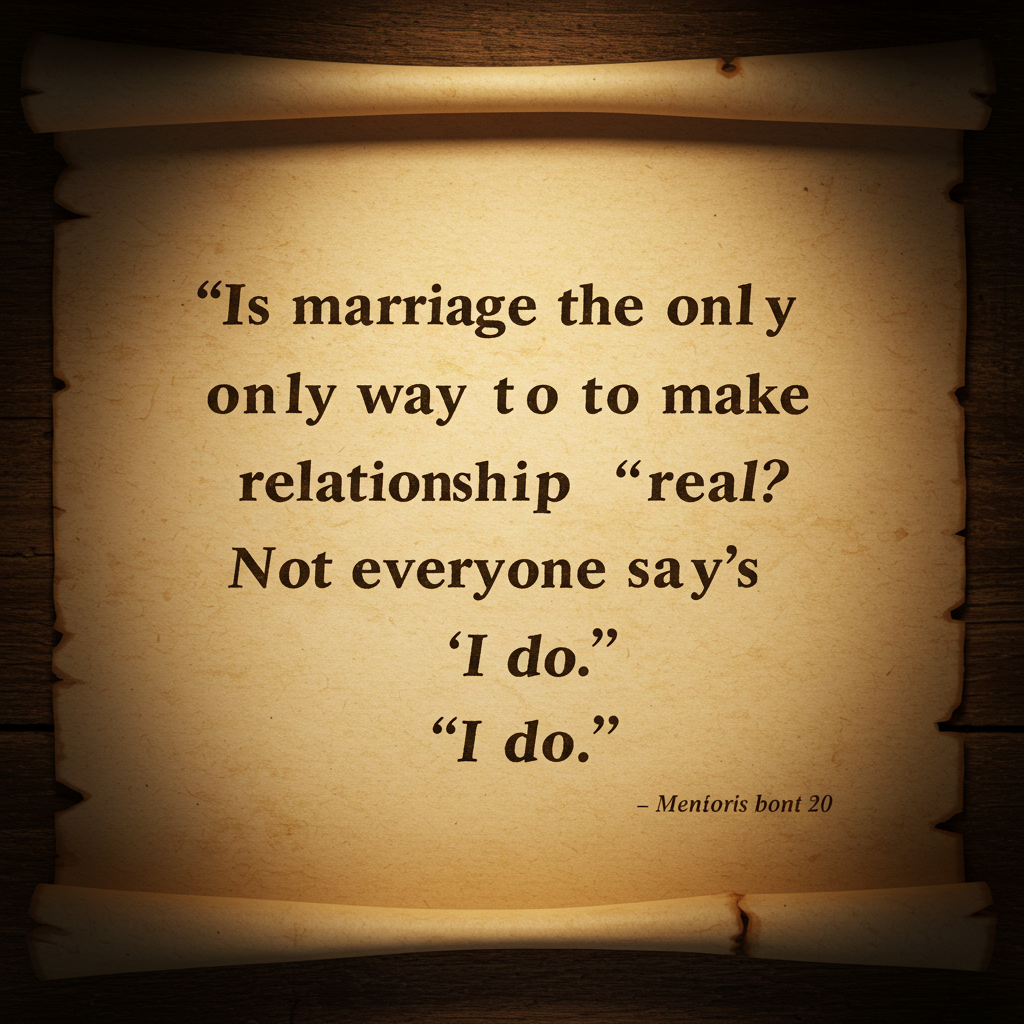
Defining a Relationship on Your Own Terms
In today’s world, not every long-term couple chooses marriage. Whether it’s for personal, financial, or ideological reasons, many partners live fully committed lives without legal documentation. OP and their partner share a home, responsibilities, and a future—what many would define as a marriage in all but name.
The sister’s refusal to recognize that bond sparked intense emotions. By drawing the line at legal marriage, she dismissed a relationship that’s every bit as meaningful as those of her other guests.
Selective Rules Create Emotional Wounds

The bigger issue wasn’t just the rule—it was the inconsistency. OP noted that other attendees were allowed to bring partners they’d known for far less time, including friends with recent dating partners. It felt personal, targeted, and unfair.
When wedding rules aren’t applied evenly, they create tension. What was meant to be a “small guest list” turned into a symbol of exclusion.
Boundaries and Consequences: Choosing Not to Attend
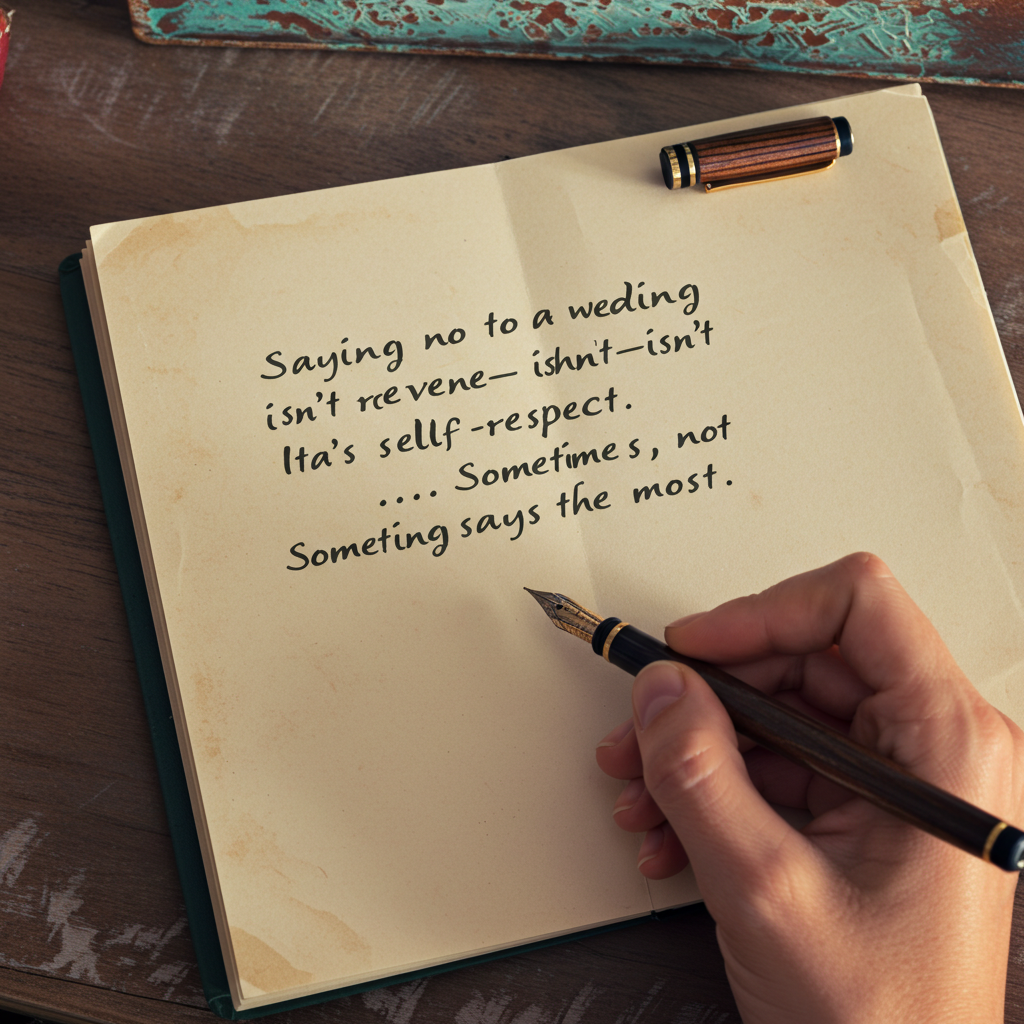
Saying No Is Sometimes Self-Respect
When OP decided not to attend the wedding, it wasn’t out of spite—it was out of principle. They felt it was wrong to celebrate a union where their own relationship wasn’t acknowledged. Choosing not to show up was a way to draw a boundary and avoid enabling what they saw as disrespect.
Many Redditors supported this decision, pointing out that attending the wedding would have sent a message: “It’s okay to dismiss my relationship.” Instead, OP stood their ground.
Family Fallout Is Inevitable—But Not Always Your Fault

The backlash came swiftly. OP was accused of being petty, ruining the day, and creating family drama. But boundaries always come with backlash, especially when they challenge the status quo.
Some commenters suggested that OP’s sister wanted to make a statement by excluding the partner—and was upset when OP didn’t quietly go along with it.
Weddings, Etiquette, and the “Plus-One” Debate
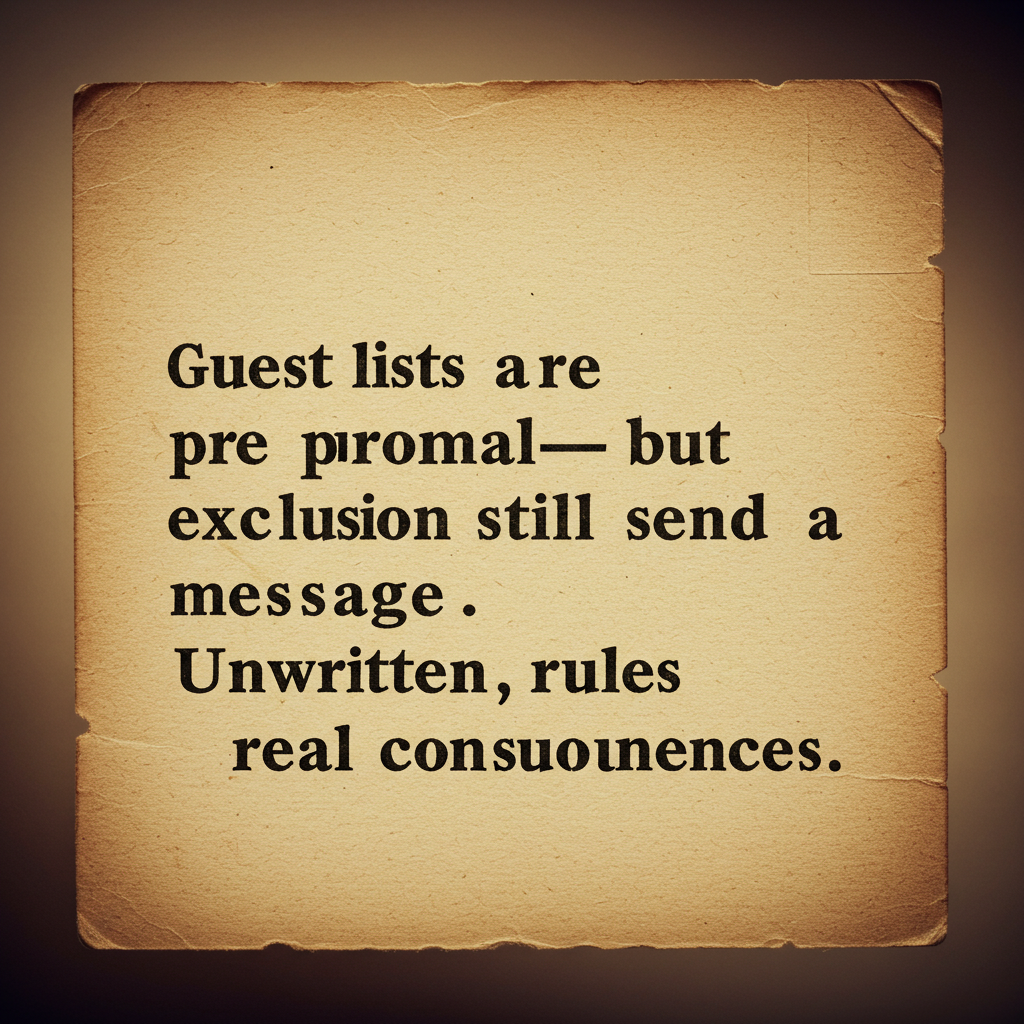
The Unwritten Rules of Guest Lists
Weddings are tricky when it comes to guest numbers, finances, and social dynamics. But one general rule of etiquette stands out: if someone is in a long-term relationship—especially one where they live together—they should be treated as a unit.
OP’s sister may have had every right to design her guest list, but rights don’t exempt you from consequences. Choosing to exclude someone’s partner sends a strong message, even if unintentional.
A One-Time Event, A Long-Term Impact

OP may have missed one day, but the ripple effects could last years. Resentment, broken trust, and emotional distance often follow events like this. Family ties are fragile, and once strained, they can be hard to repair.
Many users pointed out that weddings are a snapshot in time, but how people are treated around them reveals deeper truths.
What the AITAH Community Said
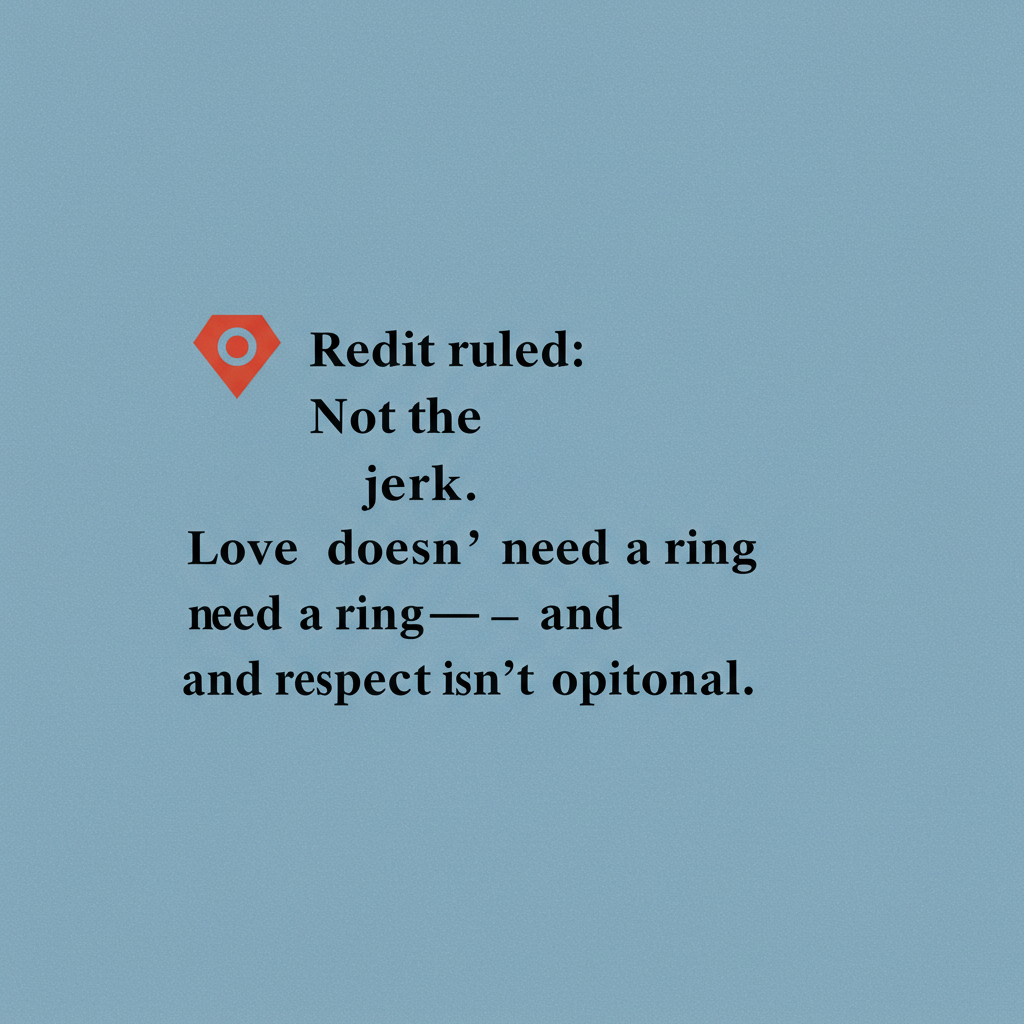
The response was overwhelmingly in OP’s favor. Reddit ruled: Not the jerk.
Some standout comments included:
“Five years and living together? That’s a life partner. Her excluding them is flat-out disrespect.”
“If she wanted to keep it small, she should’ve applied the rule to everyone—not just you.”
“Family doesn’t get a free pass to disrespect your relationship.”
Others added that skipping a wedding is a serious decision, but sometimes it’s the only way to protect your values and relationship.
Final Thoughts: You’re Not Wrong for Expecting Respect
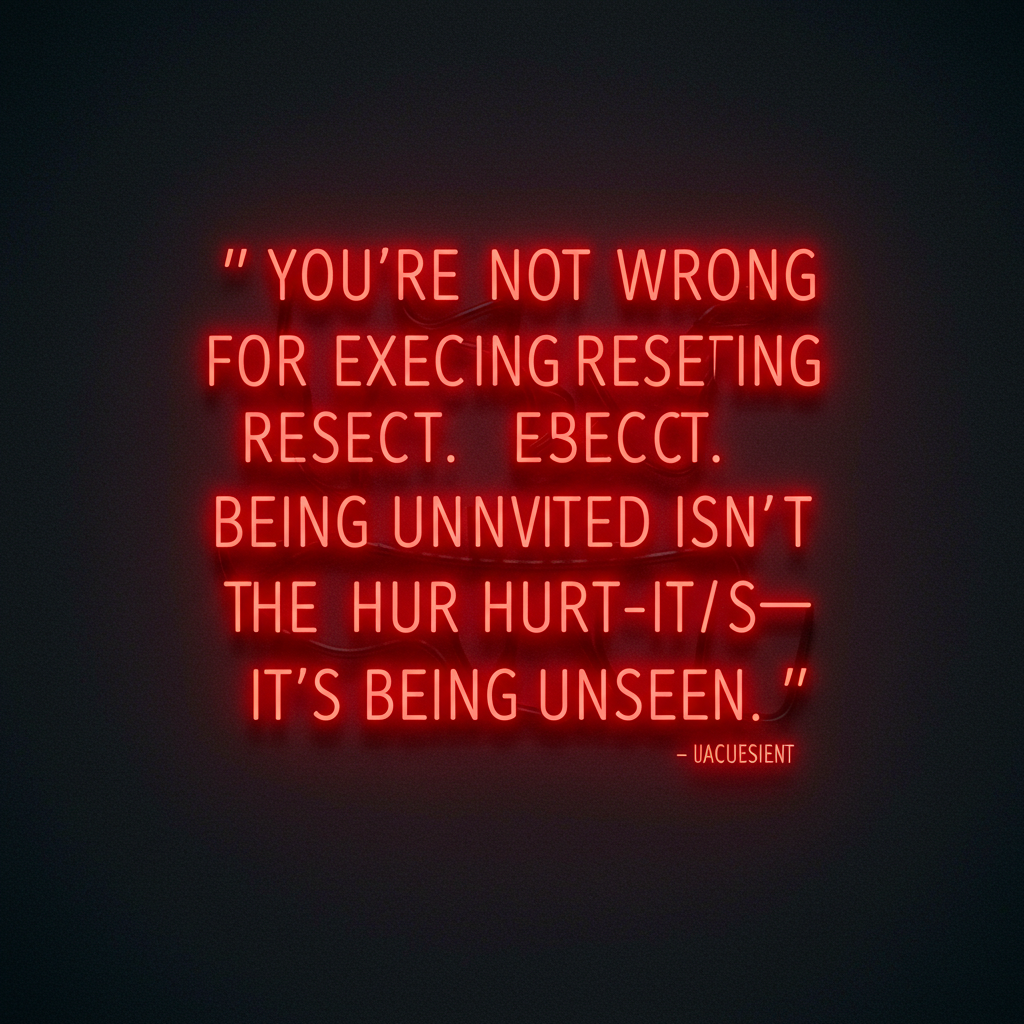
No one wants to skip a sibling’s wedding. But sometimes, showing up means betraying yourself or your partner. In this case, OP chose principle over pretense—and the internet agreed.
Relationships don’t need a marriage license to be real. And if someone can’t honor that, you’re not obligated to show up and smile.
The real issue isn’t attendance—it’s acceptance.
